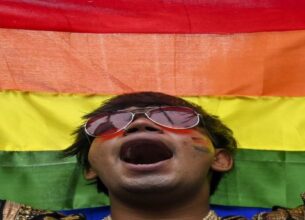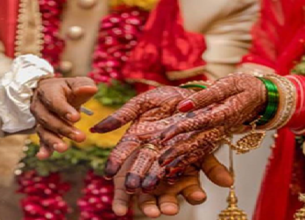Special Marriage Act, 1954
Why in News?
- The Supreme Court has recently issued notice to the Centre and the Attorney General for India on a plea by two gay couples seeking recognition of same-sex marriage under the Special Marriage Act, 1954.
Highlights
- As a result of several petitions, a two-judge bench headed by Chief Justice of India D Y Chandrachud issued the notice.
- The non-recognition of same-sex marriage amounted to discrimination that struck at the root of dignity and self-fulfillment of LGBTQ+ couples.
- The Act Is ultra vires the Constitution to the extent it discriminates between same-sex couples and opposite sex couples, denying same-sex couples both legal rights as well as the social recognition and status that flows from marriage.
- The Special Marriage Act of 1954 ought to apply to a marriage between any two persons, regardless of their gender identity and sexual orientation.
- If not, the Act, in its present form should be declared violative of the fundamental rights to a dignified life and equality as “it does not provide for solemnisation of marriage between same sex couple”.
- The Act should grant same sex couple the same protection it allowed inter-caste and inter-faith couples who want to marry.
- There has been insufficient progress by simply decriminalizing homosexuality; equality must extend to all spheres of life, including the home, the workplace, and public places, for LGBTQ+ individuals.
- Current population of LGBTQ+ are 7% to 8% of the population of the country.
- The right to marry is not expressly recognized either as a fundamental or constitutional right under the Indian Constitution.
- Though marriage is regulated through various statutory enactments, its recognition as a fundamental right has only developed through judicial decisions of India’s Supreme Court. Such declaration of law is binding on all courts throughout India under Article 141 of the Constitution.








